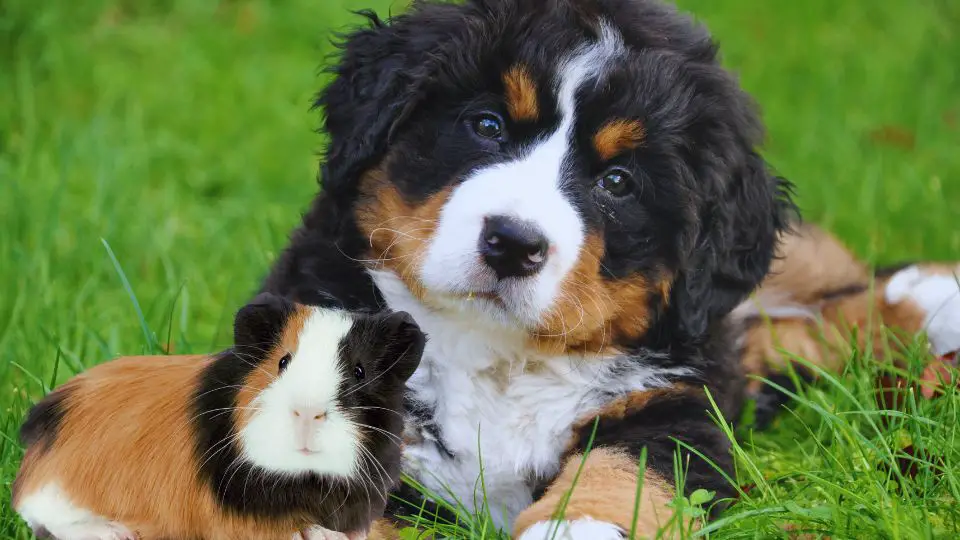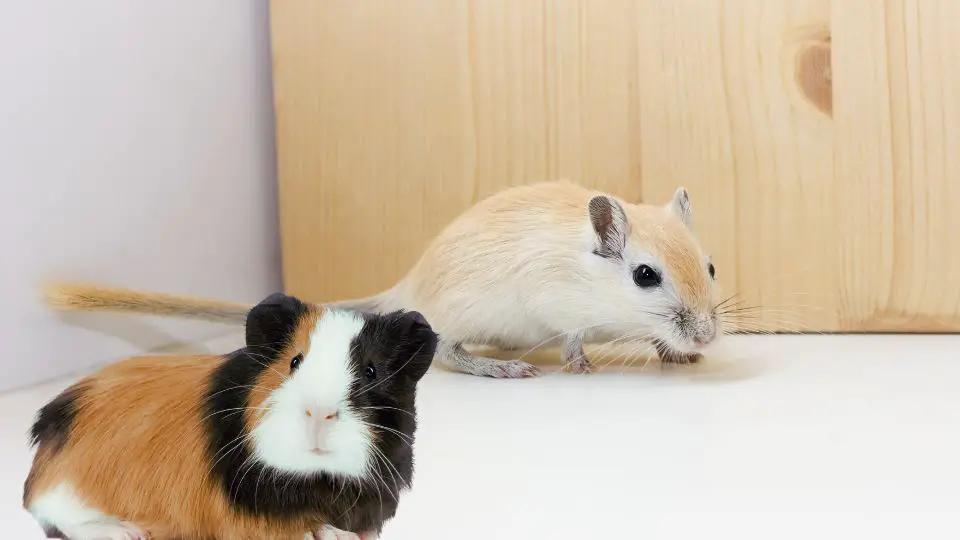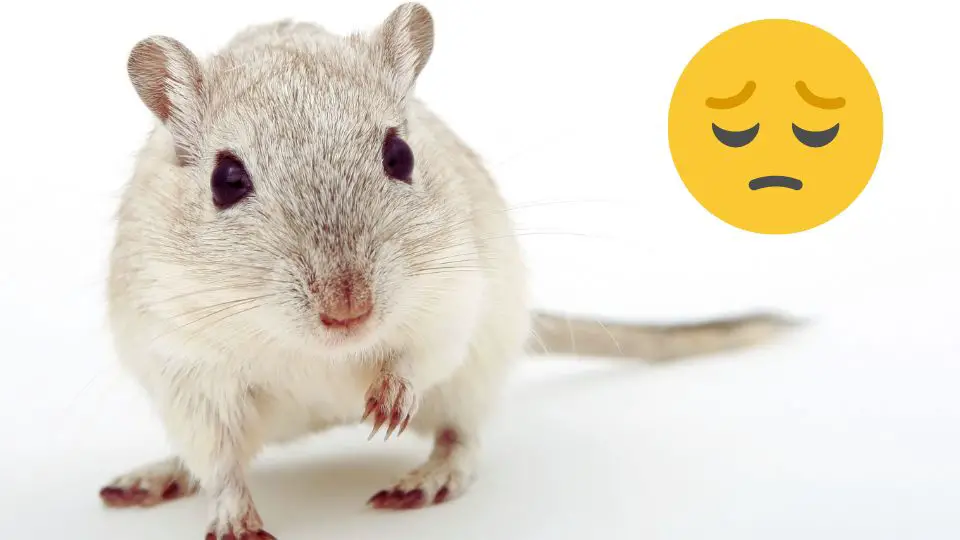As a gerbil owner, it’s important to be attentive to your pet’s health and well-being. Understanding the signs that indicate your gerbil may be nearing the end of their life can help you provide the necessary care and support during this challenging time.
In this article, we will explore common signs and symptoms that may indicate a gerbil is approaching the end of their life.
By recognizing these indications, you can take appropriate measures to ensure your gerbil’s comfort and well-being in their final days.
General Signs of Decline
In our experience as gerbil owners, we have observed that gerbils may display certain general signs of decline as they approach the end of their lives. It’s important to be aware of these signs to ensure the best possible care for your furry friend. Here are two key indicators to watch for:
Changes in Behavior and Activity Level
As gerbils age or face health challenges, their energy and activity levels may noticeably decrease. They may become more lethargic and show less interest in their surroundings. You might notice them spending more time sleeping or resting.
Additionally, a gerbil nearing the end of life may experience a decreased appetite, leading to reduced food intake. It’s crucial to monitor their behavior closely and seek veterinary attention if you notice significant changes.
Weight Loss
Weight loss is a common sign of decline in gerbils. As their health deteriorates, they may lose weight despite maintaining their regular eating habits. Regularly monitoring your gerbil’s weight and noting any significant drops can provide valuable insights into their overall well-being.
If you notice a sudden or consistent decline in their weight, it’s important to consult a veterinarian to determine the underlying cause and receive appropriate guidance.
Breathing Changes
Changes in breathing patterns, such as rapid or labored breathing, could be a sign of respiratory distress or other underlying health issues that can occur in gerbils nearing the end of life.
Lack of Grooming
As their health declines, gerbils may exhibit a decrease in grooming behaviors. Their fur may appear unkempt or matted, indicating a loss of interest or ability to maintain their grooming routine.
Loss of Bladder and Bowel Control
In the final stages, gerbils may experience a loss of bladder and bowel control, leading to accidents outside of the designated areas in their enclosure.
Specific Symptoms and Signs
Note that these symptoms and signs alone do not necessarily mean that a gerbil is dying. However, they do warrant close observation and may require veterinary attention to assess the gerbil’s condition and provide appropriate care.
Respiratory Distress
Respiratory issues can be a cause for concern in gerbils. Signs of respiratory distress may include labored breathing, wheezing, or coughing. If you notice these symptoms, it’s crucial to seek veterinary attention promptly, as respiratory problems can quickly worsen and affect a gerbil’s overall well-being.
Loss of Coordination and Mobility
Gerbils nearing the end of their lives may experience a decline in their coordination and mobility. You may observe signs of weakness, difficulty moving, or a lack of balance. These symptoms could indicate a decrease in their overall health and should be monitored closely.
Changes in Appearance
Paying attention to changes in your gerbil’s appearance can also provide important clues about their health. Dishevelled fur, patches of hair loss, or abnormalities in the skin may indicate an underlying illness or skin condition. Additionally, if you notice discharge from their eyes, it could be a sign of an infection or other health issue.
Providing Comfort and Support
We understand the importance of providing comfort and support to our furry friends during their final days. It is a time when they may need extra care and attention to ensure their well-being. Here are some suggestions for creating a calm and comfortable environment for your gerbil and minimizing stress during this sensitive time:
- Quiet and Peaceful Environment: Create a quiet and peaceful space for your gerbil. Place their enclosure in a calm area of your home where they can feel secure and undisturbed. Minimize loud noises and sudden disruptions to help them feel at ease.
- Cozy Nesting Material: Provide your gerbil with soft and comfortable bedding materials to create a cozy nest. Use materials such as shredded paper, torn tissues, or safe nesting materials specifically designed for small animals. A warm and snug nest can provide them with a sense of security and comfort.
- Temperature Control: Ensure that the temperature in your gerbil’s environment is kept within a comfortable range. Avoid exposing them to extreme temperatures or drafts, as these can cause stress and discomfort. Maintain a consistent and moderate temperature to keep them cozy.
- Gentle Handling: During this time, it is essential to handle your gerbil with care and gentleness. Avoid any unnecessary or rough handling that could cause them stress or discomfort. If you need to interact with them, do so calmly and with a gentle touch.
- Monitor Food and Water: Keep a close eye on your gerbil’s food and water intake. Offer them fresh food and water daily, ensuring that it is easily accessible. You may need to adapt their diet to accommodate any changes in their appetite or dietary needs. Consult with a veterinarian for guidance on providing appropriate nutrition during this stage.
- Minimize Stressful Interactions: While gerbils are social animals, during their final days, it’s best to minimize any stressful interactions. Limit handling and keep their environment as peaceful as possible. This allows them to conserve their energy and find comfort in their familiar surroundings.
- Spend Quality Time Together: Although gerbils may prefer a quieter environment during this time, it’s still essential to spend quality time with them. Sit near their enclosure, talk to them softly, and offer them gentle strokes if they enjoy it. Your presence can provide reassurance and comfort.
- Seek Veterinary Support: If you notice any concerning changes in your gerbil’s health or behavior, it’s crucial to seek veterinary support. A veterinarian experienced in small animal care can provide guidance, assess your gerbil’s condition, and offer appropriate palliative care options to ensure their comfort and well-being.
Coping with the Loss
Losing a gerbil can be a heartbreaking and challenging experience. Coping with the loss involves acknowledging and processing your emotions while finding ways to honor your gerbil’s memory. Here are some suggestions for coping with the loss of your gerbil and finding support during the grieving process:
- Allow Yourself to Grieve: Losing a gerbil is a significant loss, and it’s important to allow yourself to grieve. Acknowledge your feelings of sadness, grief, and even anger. Everyone processes grief differently, so give yourself permission to feel and express your emotions in your own way.
- Reach Out for Support: Don’t hesitate to reach out to friends, family, or fellow gerbil owners who can empathize with your loss. Sharing your feelings with someone who understands the bond between humans and their pets can provide comfort and solace. Online support groups or forums dedicated to pet loss can also be valuable resources.
- Create a Memorial: Consider creating a memorial or tribute to honor your gerbil’s memory. This can be a simple act, such as planting a flower or creating a personalized photo album or collage. Some people choose to write a letter or poem expressing their feelings. Find a way that feels meaningful to you to pay tribute to the joy and companionship your gerbil brought into your life.
- Reflect on Happy Memories: Take time to reflect on the happy memories you shared with your gerbil. Recall their playful antics, their unique personality, and the special moments you had together. Focus on the positive impact they had on your life and the love you shared. Cherishing these memories can bring comfort during the grieving process.
- Consider a New Companion: While it’s important to allow yourself time to grieve, some individuals find solace in opening their hearts to a new gerbil companion when they feel ready. It’s important to remember that each gerbil is unique, and a new companion will have their own personality and needs. Take time to carefully consider if and when you are emotionally prepared for a new gerbil in your life.
- Practice Self-Care: During the grieving process, it’s crucial to take care of yourself. Engage in activities that bring you comfort and relaxation. This could include practicing mindfulness or meditation, spending time in nature, journaling your thoughts and emotions, or seeking solace in hobbies or creative outlets.
FAQ
How do gerbils react when one dies?
Gerbils can exhibit various reactions when a cage mate or companion dies. Some may show signs of distress, such as increased vocalizations, restlessness, or loss of appetite. Others may become withdrawn or appear to mourn the loss by spending more time in their nest. Each gerbil’s reaction can vary based on their personality and bond with the deceased gerbil.
What are common reasons gerbils die?
Gerbils can experience various health issues that may contribute to their death. Some common reasons for gerbil mortality include respiratory infections, dental problems, tumors, old age, complications during birth, or underlying genetic conditions. Environmental factors such as extreme temperatures, inadequate nutrition, or poor hygiene can also impact a gerbil’s health and lifespan.
What happens to a gerbil when it dies?
When a gerbil passes away, their body should be handled with care and respect. Some owners choose to bury their gerbil in a suitable location, such as a backyard or a pet cemetery, following local regulations. Alternatively, there are options for communal cremation or private cremation, where the ashes can be returned to the owner if desired.
How can I help my sick gerbil?
If you suspect your gerbil is sick, it’s important to seek veterinary care as soon as possible. A veterinarian experienced in small animal care can assess your gerbil’s health, provide a diagnosis, and recommend appropriate treatment options. In the meantime, ensure your gerbil has a comfortable and quiet environment, access to fresh water and food, and monitor their condition closely. Follow any treatment instructions provided by your veterinarian and offer gentle care and support during their recovery process.
Conclusion
Caring for a gerbil in their final stages of life can be emotionally challenging, but it is an important responsibility as a pet owner. By recognizing the signs of decline and providing the necessary care, you can help ensure your gerbil’s comfort and dignity during this time.
Remember to provide a calm and peaceful environment, offer gentle care and support, and consult with a veterinarian for guidance and advice.
Although it can be difficult, being present with your gerbil, offering comfort, and saying your goodbyes can provide closure and a sense of peace for both you and your beloved pet. Cherish the memories you shared and remember the joy and happiness your gerbil brought into your life.







